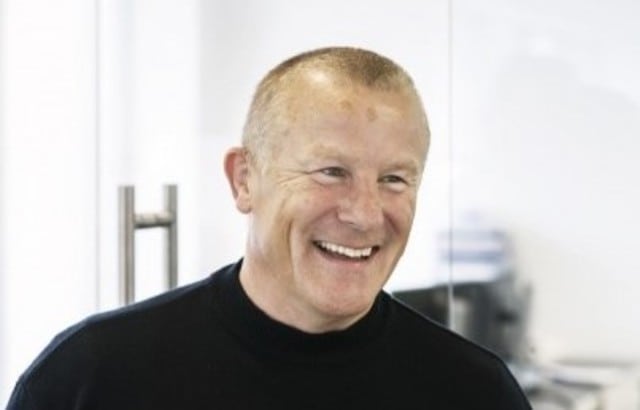In a trading update on Tuesday, sustainable polymers producer Itaconix said “slower than anticipated growth” in revenues had resulted in a full impairment on the goodwill of its acquisition by Revolymer to the tune of £6.1m.
In addition, the firm said that the valuation of the contingent consideration payable in shares to original shareholders in the business had been reduced from £3.4m at 31 December 2016 to £1.1m one year on.
Its shares sank more than 20% on Tuesday to 13p per share. Over two years ago, its shares were trading as high as 88p.
Woodford owns 20% of the specialty chemicals firm, although it makes up a very small portion of his £7.15bn LF Woodford Equity Income fund at 0.03% (as of 31 December 2017).
Although the firm doubled its revenue from £300m to £600m in 2017, its group operating loss remained static at £5.2m and its remaining cash balance was at £3.6m, down from £8.8m one year ago.
Its chairman Bryan Dobson said that “Itaconix has achieved real commercial progress in 2017”, but admitted that this was “at a slower than anticipated revenue growth rate”.
However, he said the business is “now well positioned”, citing strategic partnerships with Solvay, Croda and AkzoNobel and a distribution network for its personal care products.
“The board is confident that the company is now well positioned to deliver revenue growth from 2018,” he said.
Itaconix was not the only Woodford small-cap favourite to admit to cash troubles this week.
On Monday, another Woodford-majority owned holding, RM2 International, pleaded with investors for additional funding to prevent the company from going bust.
The smart pallet creator estimated it would have $2m in cash by the end of January, which would keep the lights on until the third week of February 2018.
But the firm told shareholders yesterday that it has “sufficient cash to continue operating through the first third of the month of March, although this could vary depending upon the outcome of ongoing discussions with third parties, including manufacturing partners and alternative sources of financing”.
Crest Nicholson
The tumultuous trading day for Itaconix comes a day after Woodford doubled his holding in housebuilder Crest Nicholson. The star fund manager ramped up his stake in the FTSE 250 firm from 5.21% to 10.34%, bringing the number of shares owned to just under 256 million.
Woodford has made a concerted push into domestic cyclical businesses over the last year on the basis of taking a more bullish outlook on the prospects for the UK economy post-Brexit. During that time, he has added major housebuilders like Crest Nicholson, Taylor Wimpey and Barratt Developments to his flagship equity income fund.
Of the more domestically-focused firms, the builders have been surprisingly resilient post-Brexit with many getting a temporary boost from the government’s Help to Buy scheme.
Last month, Crest Nicholson unveiled its final results for the year ended 31 October 2017, posting profits of £207m (up 6%) and confirmed it was building more homes and selling them at a higher price.
However, its share price is down 10% from where it was 12 months ago and is currently priced at 484p per share.
Otherwise, Woodford has started 2018 on fairly shaky ground, as some of his biggest holdings like Provident Financial, Capita and Prothena have continued to encounter problems early on in the year, which has taken a toll on their share prices.
Most recently, Capita’s shares plummeted over 40% as the outsourcing firm came clean about a £700m rights issue and issued a profit warning.
The former Invesco Perpetual manager has also made headlines for losing a total of £1bn from his flagship equity income fund within the first five weeks of the new year. Over the last twelve months, his fund has shrivelled from £10.1bn to £7.2bn at 13 February.







